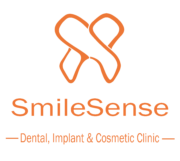I have a terrible fear of going to the dentist. What should I do?
- You are not alone. Most of us avoid going to the dentist because of anxiety or fear. The first thing you should do is talk with your dentist. In fact, if your dentist doesn’t take your fear seriously, find another dentist. The key to coping with dental anxiety is to discuss your fears with your dentist. Once your dentist knows what your fears are, he or she will be better able to work with you to determine the best ways to make you less anxious and more comfortable.
- The good news is that today there are a number of strategies that can be tailored to the individual to reduce fear, anxiety, and pain. These strategies include use of medicines (to either numb the treatment area or sedatives or anesthesia to help you relax).
How safe are dental X-rays?
- Exposure to all sources of radiation — including the sun, minerals in the soil, appliances in your home, and dental X-rays — can damage the body’s tissues and cells, and can lead to the development of cancer in some instances. Fortunately, the dose of radiation you are exposed to during the taking of X-rays is extremely small.
- Advances in dentistry over the years have led to the low radiation levels emitted by today’s X-rays. With the advent of Digital X-ray, radiation levels required are extremely low
- SmileSense Dental Clinic offers you the most advance digital dental X-Ray with minimum amount of radiation for your safety and protection. Our X-ray units are all AERB approved and of Class1 type B equipment specification.
- We undertake 6 monthly checks to monitor the radiation levels as well as the quality of X-Rays made.
Are women more prone to oral health problems?
- Yes. Women have an increased sensitivity to oral health problems because of the unique hormonal changes they experience. These hormonal changes not only affect the blood supply to the gum tissue, but also the body’s response to the toxins that result from plaque build-up. As a result of these changes, women are more prone to the development of periodontal disease at certain stages of their lives, as well as to other oral health problems. The five situations in a women’s life during which hormone fluctuations make them more susceptible to oral health problems are during puberty, the monthly menstruation cycle, when using oral contraceptives, during pregnancy, and at menopause.
How much does dental care cost?
- All fees will be explained to you in detail before your treatment begins.
How can I pay for my treatment?
- Payment is expected on the date treatment is provided or in advance if laboratory services are required prior to treatment.
- We accept
- Cash,
- Cheque,
- All major credit/debit cards (VISA, Mastercard, RUPay)
- PayTM.
- GPay
- Cashless Insurance (Reliance general insurance)
- Before finalizing your appointment, you may discuss payment options with the clinic staff.
What is the best kind of toothbrush?
- Generally speaking, a soft bristled toothbrush is best. Whether you use a manual toothbrush or an electric, anything harder than soft, is too hard. Stiff bristles may give you that clean feeling, but they can also abrade your teeth and cause gum recession. Certain situations may require other types of brush though.
What is the best kind of toothpaste?
- Generally speaking, a white toothpaste without any additions is the best toothpaste.
How do I use dental floss?
- Floss is cheap, so don’t be stingy! Tear off about a forearm’s length to start. Wrap one end around the middle finger of one hand to “anchor” it, and pick up the other end about 4-6 inches away with the middle finger of the other hand. This allows you to manipulate the floss with your thumb and fore finger. As you soil a section of floss, “reel” in another 4-6 inches of clean floss with the anchor finger as you release the floss with the other finger.Once you get the floss past the tooth contact, move the floss up and down, perpendicular to the tooth. Never shoe-shine the teeth in a back-and-forth motion! You will either notch your teeth or cut your gums, or both!
How often should I get dental checkups?
- For most people, a check-up and cleaning every 6 months is standard protocol. Depending on a person’s dental health, however, a dental cleaning every 3 to 4 months may be recommended.
Go ahead and BOOK AN APPOINTMENT today, to experience the dental treatment you always deserved.
